




Thank you for reading our first edition of ATX Compass! This magazine is dedicated to helping those who are new to Austin find their way around town. We hope this magazine will help you to learn more about this community, or if you’re already a resident, to gain a deeper understanding about what makes this city special.

Each of our editors has chosen a specific aspect of Austin to write about in a feature story, including Austin’s local restaurants, greenery and parks, and the growing tech community. You’ll also find infographics spread throughout to share info we found interesting in visual form. Look out for our mascot moose, Jeffmey, (pronounced “Yef - may”), in our graphics and page numbers!
Every page in this magazine has gone through a rigorous creation process, from interviewing local experts to pulling late nights in Photoshop and InDesign. ATX Compass is the result of an entire semester of work in our Ezine class, and we’ve poured a lot of energy and heart into what we now believe is a fantastic final product. Again, thank you for taking the time to read our publication. We hope this magazine is something you will truly enjoy.
Even as editors, we’ve discovered through this project just how amazing and unique the city of Austin is. Get out there and explore!
Eleanora Mason is covering Austin cuisine for our magazine. Her crowning achievement in Ezine is the newfound ability to finish all of her biology homework within the class period! She cannot play Tetris, especially when compared to Benjamin and Gabe. She’s passionate about food and how it can bring people together, and interested in diving deep into the culture of Austin and how it has shaped the restaurants here. Outside of the magazine, she loves to play classical guitar and run. In the future, she wants to go to medical school to become a dermatologist.

Benjamin Grubert a writer covering Austin’s Parks for the ATX Compass. He’s written his feature story on a guide to these parks, and their importance. He enjoys piano, coding, Tetris, and procrastination. He has beaten Gabe at Tetris which is very impressive. For the future, he hopes that he finishes his part of the Ezine (Hopefully he has if you’re reading this).

Cover Photo by Gabe Tao
Inside Cover by Eleanora Mason
Table of Contents by Eleanora Mason
Portraits by Jeremiah Aziz
Back Cover photo courtesy of Andy Feliciotti and ihitthebutton.com
Back Cover graphic by Gabe Tao
Isaac Braman-Ray is a writer for the ATX Compass and hates writing in 3rd person. He’s managed to take a nap in Ezine class and has contributed the seventy-four stories about outdoor activities to the Ezine. (Tetris skills??) In the future, he hopes to pass Ezine without finishing his story and ASF. Also, he thinks Mr. Garcia wants the Tetris join code. In his freetime, he procrastinates doing homework, so his freetime isn’t really freetime.

Gabe Tao is a freshman at LASA high school and is the graphics editor on the ATX Compass team. His article covers Austin’s growing tech community and the story of how Austin became a global technology hub. Some of his hobbies include playing Russian piano pieces, ultimate frisbee, and robotics. He is probably the best Tetris player in the team but refuses to admit it. Gabe would like to publicly announce that Jeffmey was not his idea.

As the day starts to set, the bats of the Ann W. Richards Bridge begin to wake. They flutter, as they ascend in a spiral. Then the sky erupts with the sound of their wings. A colony becomes a cloud, as the immense black swarm rises from their lair, as they begin their hunt for food.
The Richards Bridge on Congress Avenue in downtown Austin is home to the largest urban bat colony in the world. Millions of Brazilian free-tailed bats call the street home during the spring and summer. Most bats that roost under the water crossing are mothers, migrating from central Mexico to give birth to their young. At sunset, they take flight together to search for food, collectively eating over 10,000 pounds of insects every night.
Austin Batworks helps to protect bat colonies, selling wooden bat houses and working to raise awareness through workshops, explained Debbie Zent, founder of the non-profit.
“I’m fascinated by the variety of the way that they’ve adapted in the world to wherever they are,” Zent said.
 Photo by Dianne Odegard
A baby bat being held by Dianne Odegard. Dianne is moving the bats to a sescondary container while she cleans out their bat house.
Photo by Dianne Odegard
A baby bat being held by Dianne Odegard. Dianne is moving the bats to a sescondary container while she cleans out their bat house.
Each species of bat has crazy adaptations, such as the ghost bat which has nearly transparent wings, or the horseshoe bat, which has crazy shaped ears to assist with hearing in all directions.
“Although the multitude of bats are all part of the same colony,” founder Dianne Odegard said, “each bat is special.”
They all have a unique way of thinking and interacting with other bats and their environment. The range in personality of the bats is vast, which means that each bat is special in their own way.
The mothers in maternity colonies can give birth
to up to a million bats each year. Under the Congress bridge, about 650,000 mother bats that give birth to over 800,000 pups annually.
“During the summer as the pups begin to be born in June and July and begin to fly,” Zent said, “by the time August rolls around, you’ve got 1.5 million bats that’ll be coming out.”
Because of how many bats Austin has, we have to have organizations to care for them, such as Austin Bat Refuge, which is a non-profit organization dedicated to the rehabilitation of bats and preserving their presence in the world.
“Image by Isaac Braman-Ray“It’s constantly interesting to see new bats,” Odegard said. “When you watch all of those bats fly out from a roost, you realize that every single one has a very distinct personality.”
Each pup, a baby bat, has a unique squeak to assist their mother in finding them. In addition to their squeak, they have a smell that allows the mother to locate them in the possibly millions of pups. When at a longer range, the mothers use special echolocation calls to find their babies.
“What’s fascinating about colonies is that when the mothers leave the roost to go hunting for insects and they have to come back to feed the pups,” Zent said, “they can find their pup in those millions of bats.”
There is a lot of fear surrounding bats due to the fact that they can carry diseases, Odegard explained, but this is a rare occurrence. People also have treatments for most of the
diseases they can pass to us. Bats are fearful of humans and avoid us, so the risk of transmission is low.
“Bats are usually not rabid,” Odegard said. “A bat that you find on the ground is more likely to be

 Photo by Seshadri.K.S.
Photo by Phillip A. Robson
Schneiders leaf nosed bat up close. The bat is about to take off in search for food.
Photo by Seshadri.K.S.
Photo by Phillip A. Robson
Schneiders leaf nosed bat up close. The bat is about to take off in search for food.
sick, could also be injured. It could have a broken arm or broken fingers or any number of maybe a head injury, all kinds of things. Maybe they’re just dehydrated and need to be rehydrated and fed and then can be released. So the whole object of this rehabilitation that we do is to get them back out to the wild.”
With the efforts of organizations like Austin Bat Refuge and Austin Batworks, thousands of bats have been provided with shelter, food, and care.

Almost all of them have been able to return to the wild and live a full, healthy life – and those that aren’t able to return to the wild live in an amazing bat home.
“I think one of my reasons for working with bats has to do with them being a creature that is often maligned by people as well as misunderstood,” Odegard said. “I’m rooting for the underdog.”
GOGA (Goat Yoga)
Address: 12700 Hill Country Blvd. S-115, Bee Cave, TX 78738
Hours: Saturday: 9am - 2pm
Sunday-Friday: Closed
DO YOU LIKE DOING WEIRD THINGS?
THESE ARE THE TOP 5 PLACES FOR YOU!
Uncommon Objects (store)

Address: 1602 Fort View Rd, Austin, TX 78704
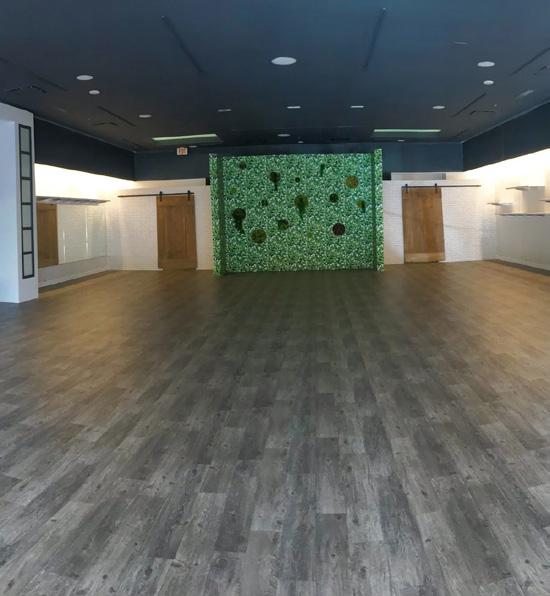
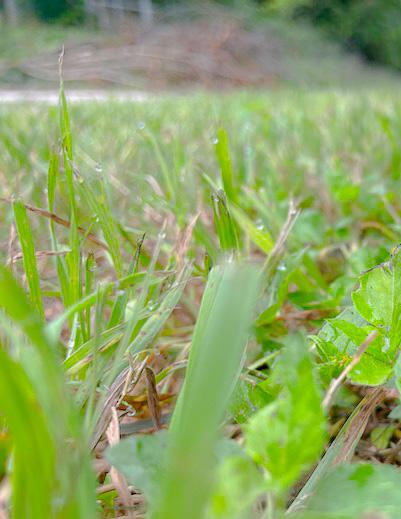
Hours:
Monday-Sunday: 10am - 6pm
Photo by Isaac Braman-Ray Photo by Isaac Braman-RaySekrit Theater
Address: 1145 Perry Rd, Austin, TX 78721
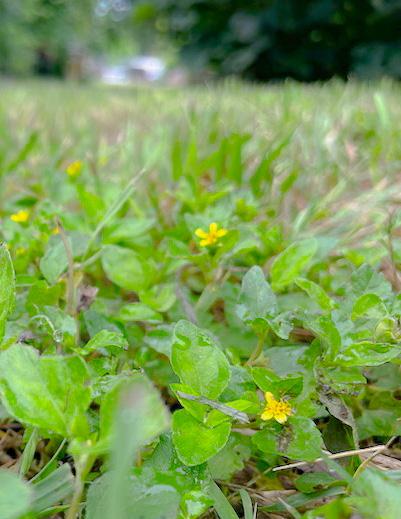
Hours: Monday-Sunday: 6am - 10pm
Cathedral of Junk
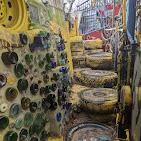
Address: 4422 Lareina Dr, Austin, TX 78745
Hours: Call ahead and ask if you can visit; there are no official hours
The Eureka Room

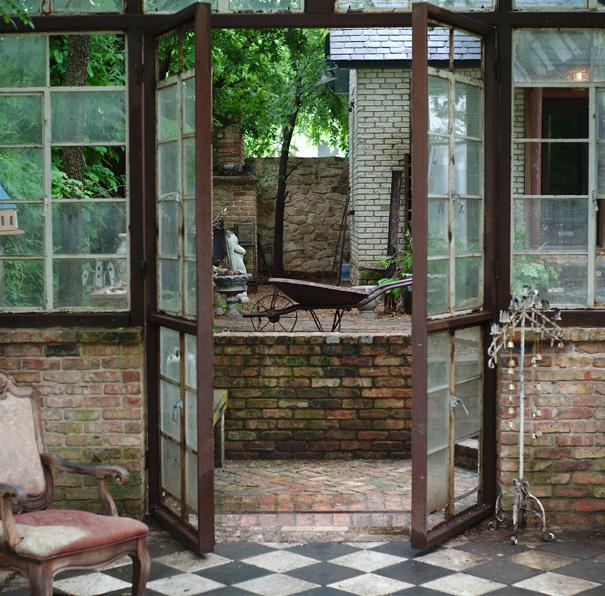
Address: 1408 N Cesar Chavez St, Austin, TX 78702
Hours:
Monday, Wednesday, Thursday: 1pm - 9:30pm Tuesday: Closed Friday-Sunday: 11:30am - 9:30pm
Photo courtesty of eurekaroom.com
AN EXPLORATION OF THE CAPITAL CITY’S CULINARY CULTURE
By Eleanora Mason
On a visit to Austin, many people are drawn to what makes the food scene unique; the lovely communities that can be found inside the dining rooms across the city.

Food is part of the DNA of the city, and as it adapts, the food scene moves with it.
Many restaurants have placed cultivating a sense of community at the top of their priorities. A feeling of togetherness is what makes a restaurant great, according to Easy Tiger’s head dough puncher David Norman, and

many of the principles that these places are founded on bring a specific and unique group of people together.
Nick Conn, marketing director at Wheatsville Co-op, thinks that the “old-Austin vibe” is still reflected at Wheatsville. Many silly and unique elements of the city’s personality are still present in the store’s two locations.
“We’re listening to Austinites every day,” said Conn. Wheatsville was founded during the cooperative movement of the ‘70s and has continued to listen to its
community since then with an elected board of directors and donation programs each month that contribute to local social change. Their most recognizable feature is a giant blow-up dinosaur on the roof of their Guadalupe location, nicknamed Mangiasaurus. The cooperative movement took off in Austin because of the lack of fresh produce available and people’s inclination to want organic, farm-fresh produce.
Conn said that Wheastville defines itself as a “community-owned grocery store” that
adapts to consumers’ needs.

“The cooperative movement as we know it in the 70s was born from this way of looking at things in a way where people wanted to make healthier choices,” Conn said.
Casa de Luz, another restaurant in the area, was also founded on the principles of fresh, natural food. When entering the dining area, the phrase “Nature is our Menu Planner” pops out from the wall of the open kitchen, where the cooking staff is visible from the dining area. Eduardo Longoria, founder of Casa de Luz, says that the community was based on the macrobiotic movement, which prioritizes whole, unprocessed foods. Casa de Luz is also part of a larger community surrounding the restaurant, where classes and naturopathic healing practices are offered.

“I think the whole idea of the community makes people have to be able to accept it in the first place,” Longoria said, “It’s got a purpose for wellness, so we don’t choose foods that are going to taste good. We choose foods that are good for you.”
According to Norman, togetherness is one of the largest
tenets of the Austin food scene, making most restaurants feel like one big community. Easy Tiger, a local bakery and beer garden, has made this one of their biggest priorities, even when choosing to open in new locations. They look for large, open locations where people can get together and chat.
Easy Tiger’s slogan, “Slow down and stay a while”, exemplifies this sentiment.
 Inside Casa de Luz, the kitchen is open for all to see. Employees and volunteers work side by side to prepare dinner.
Wheatsville has a curated selection of products at the store. This is the frozen aisle, where you can find lots of vegan options.
Inside Casa de Luz, the kitchen is open for all to see. Employees and volunteers work side by side to prepare dinner.
Wheatsville has a curated selection of products at the store. This is the frozen aisle, where you can find lots of vegan options.
The communities created at each of these institutions are self-selecting, creating a sense of camaraderie that is unique to each place. Food brings people together; the connections formed over it can be some of the strongest we can make.
“The place, it selects its people,” said Longoria. Austin’s local food establishments, whether food trucks, grocery stores, or traditional restaurants, have cultivated a unique sense of community that connects people across the city.
“It’s about that experience,” said Norman, “It’s about, you know, creating this space that people want to come and just gather and share food and drinks and have fun.”
 In the baking rooms of Easy Tiger, rows of fresh loaves are prepared. David Norman, the head doughpuncher at Easy Tiger, walks alongside his bread.
In the baking rooms of Easy Tiger, rows of fresh loaves are prepared. David Norman, the head doughpuncher at Easy Tiger, walks alongside his bread.
schoolers’ responses of their restaurants and food enterprises, all locally established. Responses google form for LASA students January to February 2023.
Over the Colorado River, the evening sun dips below the horizon, bathing Roy G. Guerrero Park in a shower of red and orange. Footsteps and lively chatter cross the colorful landscape, as the hustle and bustle of city life has died down. Silhouetted by the setting sun, figures cross the gravel path.
Parks like Roy. G. Guerrero play a vital role in Austin’s culture and environment, say members of the various park organizations there. Allison Johnson, the director of community engagement at the Pease Park Conservancy touched on this.
“Research has found that time spent in nature is good for both our physical and mental health, and often it is difficult for people to take the time to get outdoors and enjoy time in nature or green spaces are not accessible for some people for a variety of reasons,” Johnson said. “Parks provide an opportunity
 A late afternoon at Pease Park. The park features a pavillion as well as a playground and basketball court.
A late afternoon at Pease Park. The park features a pavillion as well as a playground and basketball court.
for people to connect with each other and with nature without having to spend any money.”
Beyond just health, parks can be just a fun place to hang out for anything from a small meetup to a large event, explained Wright.
“[Parks] are not only good for physical aspects of your body, but they’re also good for the community at large,” said Jess Wright, the volunteer coordinator for the Austin Parks Foundation.

Because parks influence the city and its people, they have a profound impact on the city’s culture. Collin Wallis, the CEO of the Austin Parks Foundation talked about this.
“Parks are really important to Austin,” Wallis said. “I think people in Austin are very outdoorsy, and our parks are a huge part of that.”
Despite its rapid expansion and growing tech industry, Austin remains fully rooted in its culture, which plays into its lush collection of parks.
“I think a lot of Austin’s identity is around
A sunset in Roy G. Guerrero park. The area’s beautiful evening view makes it a great place for people to relax after work.the fact that there’s so much green here,” Wright said. “Now, maybe that’s changing because Austin is growing. But I think, like not everyone, but people move here for a lot of different reasons, and I know a big reason I moved here was because Austin continues to care about parks and trees and wildlife and the springs.”
In spite of this, Austin has a long history of underserved communities’ parks not getting
the treatment they deserve, and organizations like the Austin Parks Foundation are helping to right this disparity.
“and so building park amenities and improving parks in places that historically haven’t seen a lot of park funding is certainly one way we do that, and also just advocating for those spaces and making sure that a light is shined on parks that haven’t seen the kind of investment that other parks have.”
““We spend a good portion of our budget on traditionally underserved parks,” Wallis said,
With parks being a focal point of Austin, they’re sure to attract the attention of new Austinites. However, with so many parks to pick from, the
 The sunsets at Roy G. Guerrero Park attract an evening crowd. Photo by Benjamin Grubert
The sunsets at Roy G. Guerrero Park attract an evening crowd. Photo by Benjamin Grubert
options might be overwhelming. Roy G. Guerrero is a park in South Austin that overlooks the Colorado River.
“I would recommend Roy G. Guerrero because for a newcomer, it’s … big, and there’s so much to do,” Wright said. “Every time I’ve gone there, I’ve seen really cool wildlife.”
The Barton Creek Greenbelt is one of Austin’s largest parks. It’s also known for its large collection of trails and hangout spots.


“It’s such an interesting place, and there’s so much going on down there,” Wallis said. “There’s so much to see and do, and it’s such a great place to escape the city.”
With their wide range of
health benefits, as well as things they offer, it’s no wonder that parks are so special to the city. Even as Austin grows, so will its parks.
“Where I get to go to a place and just see green, see all the different types of flowers, and see all the different types of bugs,” Wright said, “I think for me, that’s probably what is most special.”
A view of the Pease Park Trail. The park is loved for its balance of ammenities and nature. Photo by Benjamin Grubert A trail at the Austin Greenbelt, one of the largest green spaces in Austin.Austin has a huge selection of parks to choose from, but not everyone has easy access to them. Let’s explore who has easy access to parks and who doesn’t.
By NeighborhoodPeople in different neighborhoods in Austin have a large disparity in their access to parks. The graph below shows how access to parks in Austin is distributed across them.
Asian Black Hispanic and Latinx
Multiple Races
White
7%
Median
70% of people in Austin have 10 minute walking acess to a park. This percentage is unevenly distributed through people with different ages and incomes. The graph below shows this distribution. The average is not exactly the middle due to rounding and each section being a different amount of people.
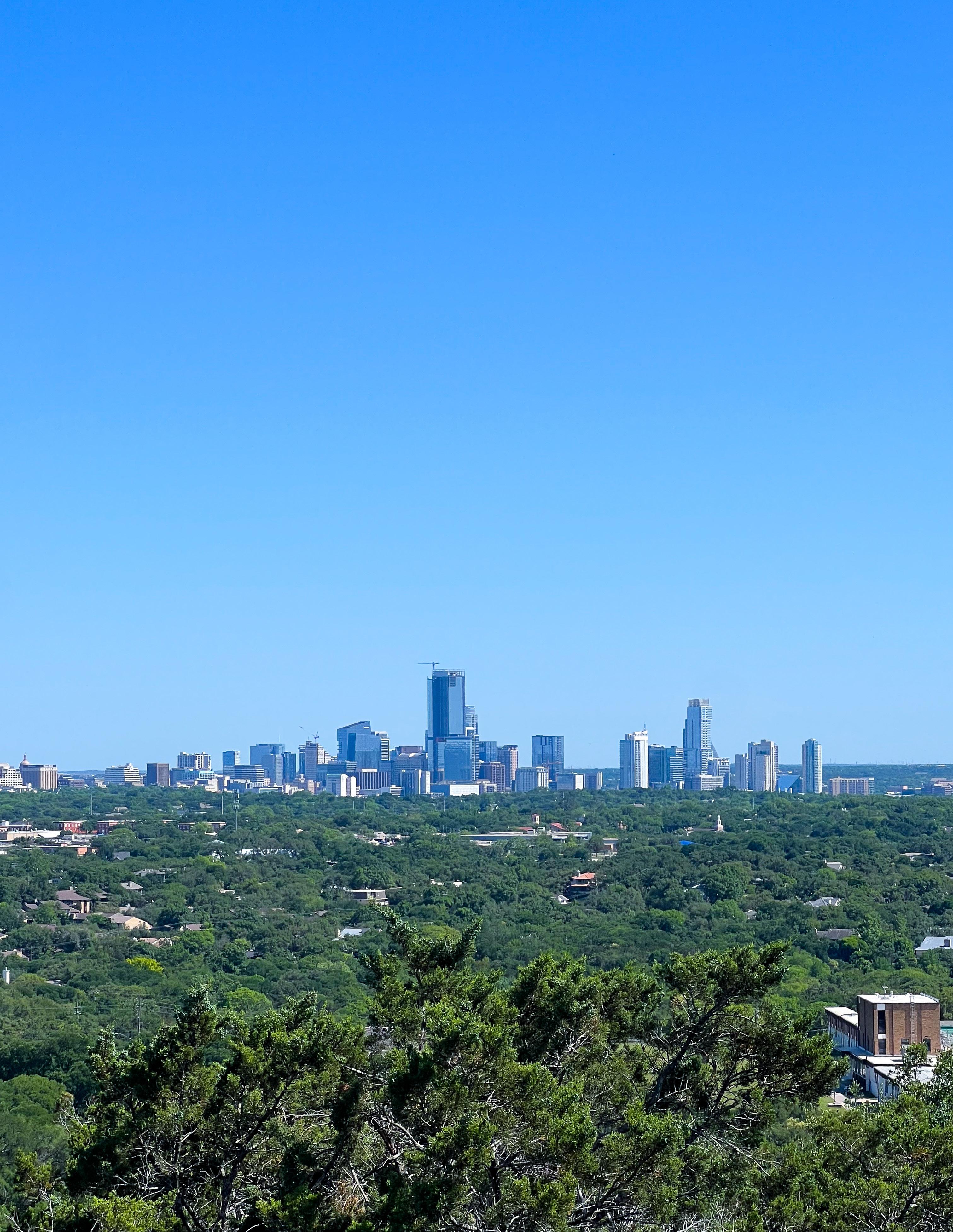 A cluster of technology-related businesses. The downtown skyline towers over the hills of West Austin, where most of these businesses are located.
Photo by Gabe Tao
A cluster of technology-related businesses. The downtown skyline towers over the hills of West Austin, where most of these businesses are located.
Photo by Gabe Tao
a lot of networking with other startups and other tech companies, which is really nice.”
from the hills of West Austin, nestled in the dense greenbelt, are a shining accumulation of office buildings. They follow the river, extending from the far reaches of downtown all the way to Loop 360. Longtime residents with sharp eyes will notice how a new one seems to appear every month or so. Each one of these office buildings happens to belong to the same business sector: technology.
Since the ‘80s, Austin has seen a rapid growth of technologybased businesses. Some, like Dell, Samsung, or IBM have held offices in Austin since the beginning of the tech boom. Others like Oracle have only moved their headquarters here during the past few years. Many are multi-billion dollar, worldwide companies, extending their powerful tech influence to Austin. And in between, small tech businesses are appearing faster and faster.
Aifleet, a tech-enabled trucking company, moved its offices to downtown Austin in 2020 and

developed an AI software that optimizes delivery routes for truck drivers. According to Samantha Brody, Head of Marketing and Driver Recruiting at Aifleet, both the software engineers and the fleet of drivers are able to benefit. Brody said that the city of Austin as a whole is very small businessfriendly, which has helped it become a new tech hub.
“I think a lot of people like working here because there's no income tax, so it incentivizes employees,” Brody said. “There's
A growing cluster of tech related businesses mostly in the hilly area of West Austin has earned Austin the nickname “Silicon Hills” after the well-known Silicon Valley area. As tech-based businesses started moving to town, the Austin government began to encourage further growth. Some intentional decisions were made to spur on new companies to call Austin home, according to Joshua Henke, ERP (Enterprise Resource Planning) architect at SolarWinds.
“A lot of it was really accelerated in the mid-2000s because of accommodations that Austin, the city, was making for tech companies to attract them here,” Henke said. “And made certain investments and maybe gave tax breaks or we had property around. We just had a synergy of
Photo courtesy of Samantha Brody Aifleet's trucking headquarters are based in Austin but operate around the country.people being interested in this area and someone taking a chance.”
A gathering of companies, all with a similar niche, is bound to form complex relationships within itself. Tough competition between multiple businesses seems like a likely possibility, but these companies also depend on each other for support and buy each other’s products.
“Samsung and Apple is a pretty common one, where they’re both competitors and they’re customers of each other,” said Henke. “Customer and vendor, they have this multifaceted relationship.”
The personality and character of coworkers is another important factor as to what makes Austin special. One reason why Austin is becoming a tech hotspot is because of the vibrant community of tech workers.

The type of worker that Austin attracts is another important factor in its growth as a tech hotspot. The vibrant community of tech workers are attracted by the nature, food, new opportunities, or the oddity of the city. This creates a workforce of people with a strong character and unique personality.
“The people are hardworking and really ambitious, and they want to build cool things and meaningful things, and they're also very nice and friendly and pleasant to work with. And that's actually a core value for us. We talk a lot about mutual respect and bringing more fun and appreciation to the work environment,” said Brody.
Having people that are all interested in technology also creates a sense of closeness and community, explained Akihiko Tomita, a principal software engineer at NI (National Instruments).
“It's easy to meet other people that have similar interests as you,” said Tomita. “There's a lot of crosspollination as well within Austin. We have friends that can talk about similar technologies. It's just a
 The lab room at NI is full of
The lab room at NI is full of
good place to be.”
Colleges like the University of Texas, Texas A&M, and Texas Tech are all close to Austin and specialize in technology-based degrees. This gathering of tech-oriented students not only attracts workers to Austin, but also entire tech companies who are seeking to hire.


culture; the greenery or food; or the relaxed, laidback vibe. Whether you’re looking for a solid tech base or a quirky, welcoming community, Austin has something to offer for everyone.
“Here in Austin, we have a number of universities, so there's education,” said Tomita. “There's a lot of arts here. There's a lot of live music. There's a lot of visual arts … it's a wide range of things, and so I think people can take advantage of not being around just tech or engineering people. There's a lot of things that are offered. I think a lot of people kind of crave that diversity of hobbies and diversity of people here.”
“There's already a heavy tech presence in Austin, and there has been for a while. I think a lot of companies are also coming to Austin because they already see that there's a worker base here that exists in Austin that's already tech-heavy, and they don't need to relocate those employees,” said Tomita.
Work in Austin is not the only reason why people are moving here. There are more factors that attract businesses here, whether it’s the music
All of these factors and more have led businesses to identify Austin as the place to move their company to. According to Brody, what makes Austin special is not just its growing technology sector but also that it’s so livable.
“Austin is the perfect combination of good life and good work,” said Brody. “The weather, the people, the environment, the culture makes it a good place to live, and people bring that good attitude to their work.”
of equipment for testing products. Photo by Gabe Tao Akihiko Tomita explains the Linux kernel and user spaces.




























































































Fill in each empty box with a letter from the word AUSTIN.
I
A U S T N U I N S A T
by Isaac Braman-RayEach row, column, and 2x3 rectangle must contain exactly one of each letter.
solution on page 32
Unscramble these four Jumbles to form four ordinary words.
When you’re finished, arrange the circled letters below to spell out a popular destination in Austin.
solution on page 32
by Gabe TaoColin Wallis Jess Wright
CEO of the Austin Parks Foundation Volunteer Coordinator for the Austin Parks Foundation
David Norman Eduardo Longoria
Head Dough Puncher for the Easy Tiger Bakery
Founder of Casa De Luis
Samantha Brody Akihiko Tomita
Head of Marketing and Driver Recruiting at Aifleet

Allison Johnson
Director of Community Engagement at the Pease Park Conservancy
Nick Conn
Marketing Manager for Wheatsville Coop
Joshua Henke
Principal Software Engineer at NI ERP Architect at Solar Winds
Debbie Zent Dianne Odegard
Founding Bat Member at Austin Batworks Executive director at Austin Bat Refuge
Jeremiah Aziz Freshman at LASA high school